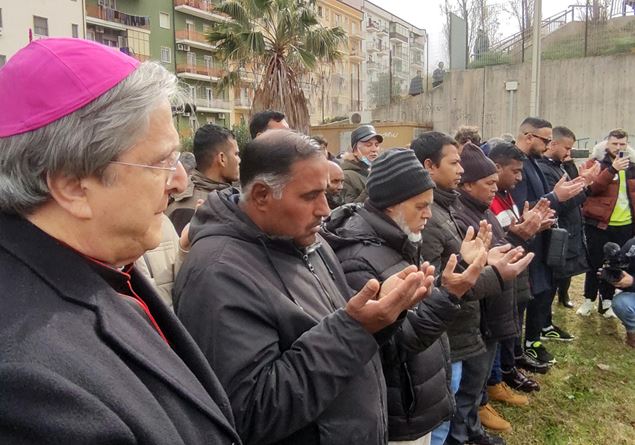“Referendums are our possibility to say how we think and activate change processes.” In the aftermath of the Permanent Council of the CEI Monsignor Francesco Savino, vice -president of the Italian Episcopal Conference starts from the final press release in which, regarding the questions on which we are called to vote on 8 and 9 June, it recalls a “careful discernment”. And he adds that, “to this it must be joined to a serious and documented reflection because four of the questions touch the work and the fifth a theme, the citizenship, on which we play our civilization a little and the possibility of a mature democracy”.
So, in your opinion, should you go to vote?
“I heard the slogan” The vote is our revolt “. This term is very excessively, but I would say that the vote says our commitment not to let others decide for us. And I would like to draw attention to five words that are the reading keys, in my opinion, of these questions: work, safety, dignity, citizenship and democracy. These are important issues. And I like to look at the referendum as a school of participation and citizenship. This is why talking about abstention seems to me a paradox ».
But even not going to vote is legitimate.
“Certain. It is legitimate by the citizen to express his opposition by not going to vote. However, the rules should probably be changed. I think it would be better to raise the number of signatures necessary to propose a question – perhaps from 500 thousand to one million – but then lower the quorum in order to give citizens the real possibility to express their ideas. I believe that the referendum has a huge civic value, not only for the specific content of the questions, but for the same fact that calls citizens to exercise sovereign power. Not voting, in my opinion, means giving up an opportunity for re -appropriation of one’s role ».
So what to do?
«First of all, learn more. Do not vote for fans, but because it was thought, it was discussed, evaluated. In this way the referendum becomes a collective intelligence laboratory. If we think that the best way to make a law is to prevent it from being discussed, we have lost the sense of deliberative democracy. The polytologist Giovanni Sartori said that democracy lives if there is informed participation, otherwise it is emptied of meaning “.
But even CEI in the past invited not to go to vote.
“These were questions about assisted fertilization and a great bioethic question was at stake that is not there. And in any case even in the CEI there were different sensitivity ».
What does it say about the specific questions?
«As for citizenship, which means going from ten to five years to obtain it it seems to me that an overall reform is needed. At the moment the question is addressed with a securitarian approach, of prejudice against our sisters and migrant brothers, who are, instead, a resource, a human capital. I come from the school of Don Tonino Bello who educated me to the conviviality of the differences, where the difference is evidently a resource and not a problem. I speak of diversity of all kinds and of all kinds. My assumption, therefore, before voting, is to reflect and document itself. Dogmatic issues are not touched here, which invest our profession of faith, but are important questions for our being citizens. It is the dignity of work, safety at work, our migrant brothers. And then I do not go into the merits of what everyone wants to vote, but, I repeat, I think that the referendum is not only a right, but it is an act of civil resistance to the logic of resignation, a gesture of care for democracy. A deal that concerns everyone ».


